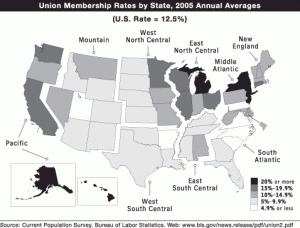It has been obvious for some time now that national politics was too personal. After the Tucson shooting politicians seemed to reign themselves in, embarrassed by how out of hand they had become with personal attacks and finally ready to evaluate the tone they generated with mere words to the public.
What has happened to all that blame though? It is still churning through the public and if politicians were the source of it, that source will need some time to start modeling more positive and less personal attacks masquerading as newsworthy. While we hold our collective breath for that to happen, the blame du jour is teacher unions, for all the uneducated in broke states across this country and as we compare to China. It is a fascinating thing to listen to people talk about the effect one particular teacher had on them, but then dismiss the entire profession. Teachers collectively may be disparaged as lazy, overpaid, or inept. It seems the public likes individual teachers, but not large groups of them.
The largest group of teachers the public can imagine often is a teacher’s union. According to Walt Gardener via Education Week, the rise of the unions in this country correlates to the growth of the middle class and the demise of unions correlate with a lower wage for the middle class. Chuck Berman of the Chicago Tribune implies that unions are the reason that bad teachers are still working in schools. It appears later in his article that teacher quality should be judged on students test scores. People outside education may equate a “good” teacher to good test scores, but those inside education know that teachers that are highly effective at making that connection with a student are often assigned at-risk students. That type of student may have a deficit of years and will likely not be able to test at grade level regardless of the quality of the teacher or instruction. Mr. Berman erroneously assumes teachers that are good at making connections with students will have students in their class that always produce high test scores. If he is allowed to play out his litmus test of test scores evicting teachers he will most likely rid Illinois schools of the very teachers he praised at the onset of his article. Luckily there are unions, that slow such processes which might gut the school system if public opinion was able to be carried out without check.
Even if we overlook the public misunderstanding of what makes a good teacher and how to measure that. We need to examine if unions are the hurdle that keeps the public from making education better. If unions are the problem then one might expect to see non-union states with stronger educational achievements.
First study this map of union membership by state from InfoPlease:

If higher union membership produces lower educational achievement then the darkest states here (California, New York, Illinois, Michigan, Ohio, and New Jersey) should all be at the bottom of the ranking of educational achievement. While the least unionized, the lightest, should be at the top.
Next, go to StateMaster.com and look at that map and list. You find that the least unionized states are mid-pack at best. And three of the highest unionized states are in the top ten; mixed results.
If unions are not the cause, maybe instead of adding to the frenzy of blame in education we could collectively pause and start to look for the real reason education is not as good as we know it should be. We should not wait for politicians to model for us a more reasoned approach to solving problems, we should start to solve it from the inside before we are dismantled from the outside. If people can still remember at least one good teacher we know where our real capital is, our teachers. I think we as a profession are starting to organize ourselves, across geoboundaries, and I am optimistic that can result in something great before the public shuts us down.





Leave a Reply